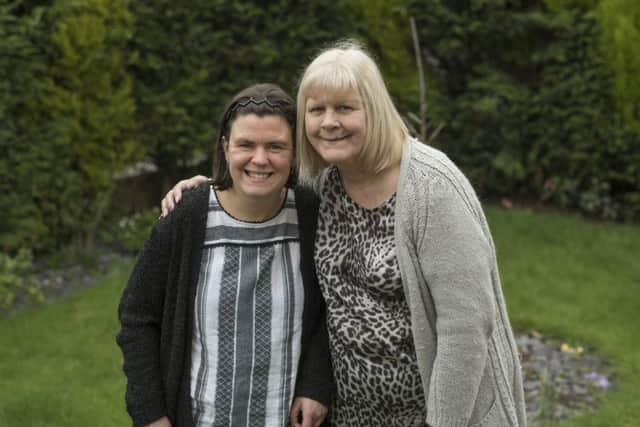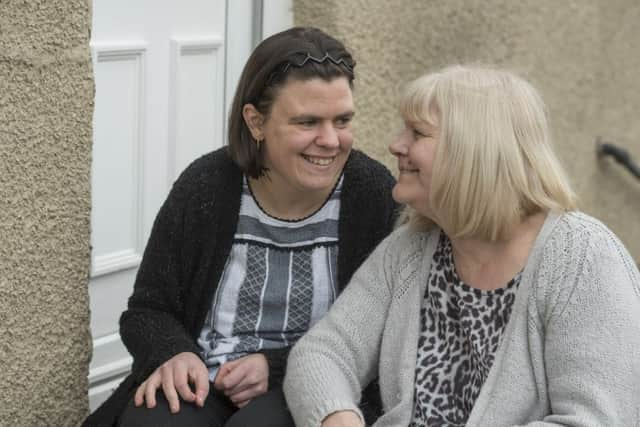Hospital pays out damages to epileptic Halifax woman for medication errors


Despite having learning difficulties, Katrina Stringfellow, 35, managed the condition - which causes recurrent seizures and affects around 600,000 people in the UK - so well that she’d not had an epileptic episode for 16 years.
However, following a rare series of fits in May 2013, she was rushed to Calderdale Royal Hospital.
Advertisement
Hide AdAdvertisement
Hide AdAs part of a legal case it was alleged that negligent treatment – as doctors failed to give her the doses of seizure-controlling medication required – caused her to suffer a string of extra long-term health problems.


Calderdale and Huddersfield NHS Foundation Trust, which runs the hospital, has now admitted failings after a case was brought against it through medical negligence.
The Trust admitted a number of errors with regard to provision and administering of seizure-controlling medication, including wrongly ending a course of treatment to failing to increase the dose of another, and the failure to provide appropriate alternative medication.
It also admitted that evening doses of required medication were not given on two occasions, whilst it also accepted that is monitoring of Katrina’s medication when transferring her between wards was inadequate.
Advertisement
Hide AdAdvertisement
Hide AdTasmin White, the solicitor who represented the family, said poor care had caused her Katrina to suffer unnecessarily and caused extra difficulties for her going forward.


This includes the loss of memory and communication skills, leaving her now unable to care for herself as she did previously and heavily reliant on her carers and mother Karen.
Katrina has now been awarded a five-figure compensation settlement as a result of the legal claim to help with her future needs and care.
Her mother, Karen Stringfellow has spoken about what happened to her daughter as she believes it has highlighted gaps in the treatment and knowledge of how to care for epileptic patients in hospital.
Advertisement
Hide AdAdvertisement
Hide AdShe had already lost one daughter, Krisia, to epilepsy, and Katrina’s sister, Kasia, also requires 24-hour care.
Katrina had been under the care of doctors at Calderdale Royal Infirmary for almost six weeks after her admission and failed to return to her previous level of functioning following discharge.
Her extra health problems included possible lasting brain damage, poor memory, increased emotions, difficulty performing everyday tasks and the need to be prompted to look after herself.
Ms Stringfellow said: “What happened to Katrina shouldn’t happen to anyone. I asked the nurses who were caring for her what specific epilepsy training they’d had and they told me it was very little, that is very concerning.
Advertisement
Hide AdAdvertisement
Hide Ad“From what I saw, there were no protocols or procedures being followed to care for patients with epilepsy. Katrina had lots of fits whilst she was in hospital and they should have been logging every one, the details of how long it was for, what type of fit it was, her reactions and her recovery, but they didn’t even sit with her through the fits.
“I counted 24 fits one day and I logged them myself. Katrina didn’t even have time to go to sleep because the fits were so regular.
“I remember trying to get her into bed one particular day and she fell onto it. She turned around to me and said ‘what’s the point’. It broke me. She had given up.”
Katrina needed speech and language therapy, physio and occupational therapy, and additional care and assistance when eventually returning home.
Advertisement
Hide AdAdvertisement
Hide AdMs Stringfellow says she has seen a big change in her daughter’s personality since returning home as she now lacks motivation and has lost her self-confidence.
She added: “Katrina was an independent young lady and she used to swim with me. Now, she is more reliant on me and calls me ‘mummy’, which she hasn’t done since she was a child. She was in bed for so long, she now has a damaged foot, she stutters when she talks and is 10 per cent more disabled than before.
“We have managed to get quite a lot of Katrina back over the past couple of years but it has been hard work. She had to go for physio to help her walk again, she needed salts to help her swallow and she had to learn how to go to the toilet again.
“I’ve felt that I’ve had to share what happened as this is not just about speaking out for my daughter.
Advertisement
Hide AdAdvertisement
Hide Ad“I’m speaking out for all people who have epilepsy and who may need the appropriate care in hospital.
“There needs to be more awareness and more understanding. There certainly wasn’t for Katrina when she needed care and it’s such a worry.”